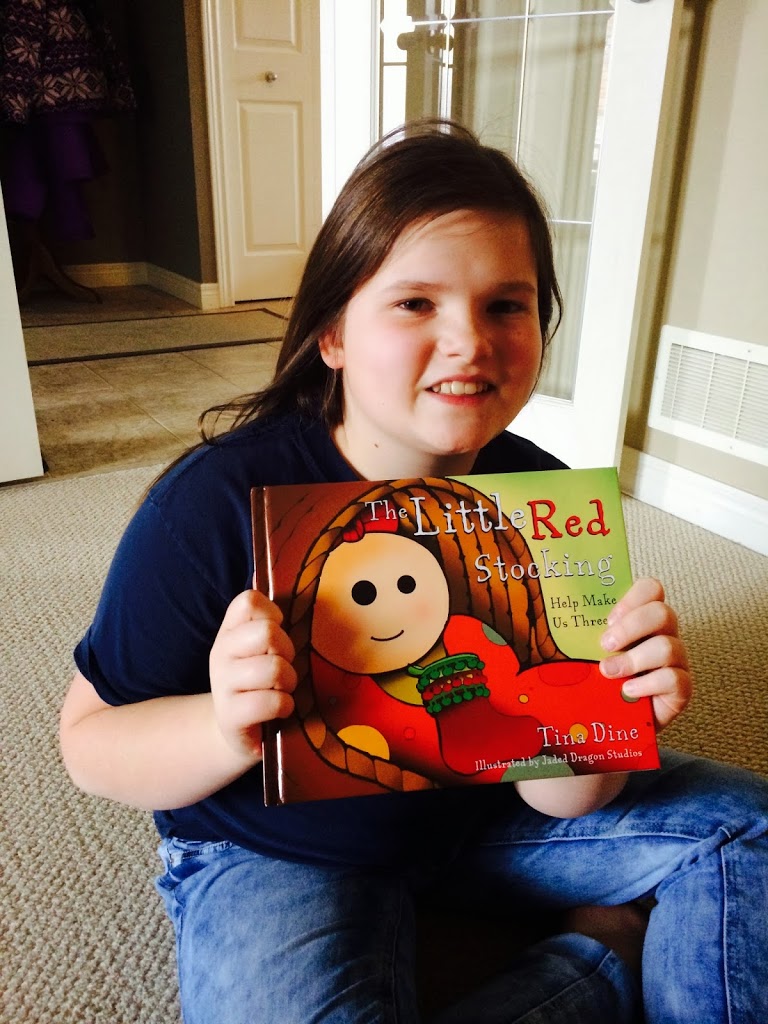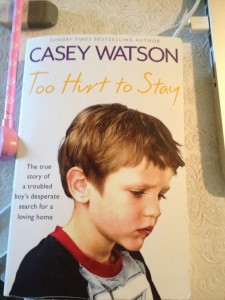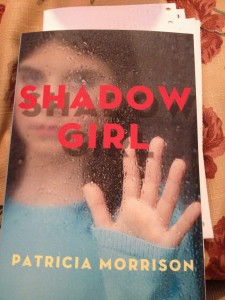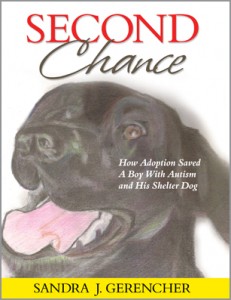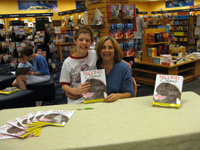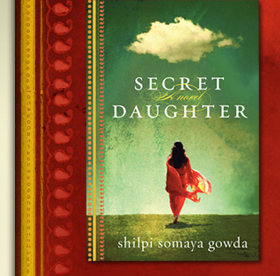The Secret Ingredient – Review #books
Too Hurt to Stay Review
I started reading Too Hurt To Stay and then my mother passed away unexpectedly and my hobbies all fell by the wayside for a time. Grief and funerals took the place of reading for fun. The topic matter of Too Hurt To Stay intrigued me, but at the same time I was a bit apprehensive that picking up a heavy book right after such a trauma might plunge me into a deeper sadness. Eventually my heart felt ready to tackle Casey Watson’s world. In all honestly this book, a memoir, is not as devastatingly sad as I anticipated. It is quite simply an honest story from a foster carer’s perspective about one little boy who came into care and was her charge for a time. Too Hurt to Stay is about an 8-year-old boy declared born evil even before he hits Casey’s home, a place they also learn is his last chance at foster care.
Casey is a specialist foster care provider in the United Kingdom. Casey Watson is a pseudonym and has written many books in a similar vein on children in care. I look forward to reading more because her writing style is straightforward and easy to read and her topic is enlightening. Casey is married with children and has three grandchildren. She lives with her husband Mike. The couple care for the highest needs children with no place else to go.
Spencer comes to Casey’s home with a huge bag of tricks and the couple is warned in advance, but has some difficulty believing a boy of 8 could be a match for their skills. But as time wears on and the honeymoon ends Spencer reveals every last one of his behaviours, which all resist modification techniques. Casey never gives up on Spencer despite the fact that he is a pretty excellent confabulator who seems to lack a conscience and acts, at times, feral. Spencer’s visits to his biological family are taxing on everyone and they don’t go well at all. Casey suspects Spencer’s Mom is an alcoholic and she has too many children to care for. But strangely Spencer’s file states he asked to be put in care on his own. That seems at odds with what Casey sees and hears and so she does a bit of investigating and learns there’s a bot more to his situation that everyone thought.
The epilogue here is a lovely wrap-up. Too Hurt to Stay gets a $$$$ out of $$$$$. It’s a good read, with a solid story. I would recommend it for any of my fellow adoptive parents or foster care providers. It is always helpful to gain real situational stories about the behaviours of hurt children. This is a hard topic matter, but a worthwhile read. Too Hurt to Stay has many lessons to teach other foster care providers.
Too Hurt to Stay is by Casey Watson, Harper Element, 2012, paperback, $14.99, 294 pages.
Shadow Girl: Young Adult Book Review #adoption
One of my greatest literary indulgences these days is YA literature. I am increasingly blown away by the quality literature coming from authors working in this genre. Shadow Girl is one new paperback novel I couldn’t wait to get my hands on because of the adoption, foster care and poverty themes that run throughout. The promotional blurb alone led me to believe it would captivate both myself and my daughter, Payton. Together, we review appropriate young adult books here because she is as voracious a reader as I am.
Paula:
Shadow Girl is a beautiful story, sad and gentle, with some small alarming moments that provide a genuine insight into how far too many young people and children live in North American society. It is a substantial social issues and coming of age story that revolves around how to negotiate that territory when you are basically alone in the world left to fend for yourself. Jules is 11 and her father is an alcoholic. We are told early on that her mother left the duo and no reason is provided for that, but this lack of background on Mom is not a detractor to the plot.
Jules father is emotionally abusive to her when he is drunk and overwhelmed. His character, to me, was accurate, more concerned about his next drink and his next girlfriend or party. Unfortunately Jules is left many nights all by herself at home and she develops quite a tough shell. She spends many afternoons hanging out at the local shopping mall where she gets to know a salesperson who will change her life in more ways than one.
After a lengthy bender, Jules father discovers that she has been apprehended by Children’s Aid. This begins a different section of Jules’ life. She is devastated to be taken from her father, despite the fact that he hasn’t been a parent to her in any respect for many years.
I enjoyed the author’s skill in showing details through the narrator’s eyes. Morrison never over explains or tells the reader what to think. For instance she describes the face of the father’s new girlfriend as puffy and red in a way subtle enough to inform everyone she too is likely an alcoholic or addict.
I could have handled more from this story and felt it ended a bit too neatly and a bit too quick. I am not a fan of literary and television accounts of foster care and fully understand there are all sorts of people who take care of kids in all kinds of cities throughout North America, but many depictions of foster care are inaccurate, in my experience. Obviously, an antagonist and conflict were necessary to drive the plot, but I think the author might have used a more creative tool than the insensitive foster parent cliche.
While I really enjoyed the naive narrator in Shadow Girl and have no problem recommending this for any child over the age of nine, I had minor issues with it as an adult. I found Jules to be a very gentle version, almost a muted down version, of most children I know who have come through the child welfare system. She remains naive and sweet and never really loses it. She escapes her foster care situation every chance she gets and she escapes her father’s home as well, but I expected more from a child raised by an alcoholic and shuffled through homes at a crucial age in her development. It seemed to me the real life Jules would have been acting out one heck of a lot more than this character did.
Patricia Morrison is a Canadian who lived in Toronto for many years but now lives in British Columbia with her family. She worked for the Ministry of Children and Families for many years in child welfare. This is her first novel.
My rating is $$$$ out of $$$$$. ( This is the kind of book that could easily be built into school curriculum. It is gentle and provides a great insight into poverty for young adults.)
Payton: (in her own words)
Shadow Girl is an emotional book, filled with happiness, sadness and anger, even frustration. It is set in 1963. I think this is probably similar to what one of my friends experienced when she was living with her birth family, before she was apprehended and placed in foster care in Ontario. The main character Jules is the same age as me. She has many of the same moods as I do and I completely understand her emotions. I feel the same way sometimes. When I read these books I like to put myself in the character’s shoes, just as I would if I were acting in a play. I like doing this because it helps me to feel what they are feeling. At times this was difficult with Jules because her life is sad, but I liked her imaginative spirit and how well she used it to express herself in the book. She made a lot of forts to keep herself feeling safe and she imagined all sorts of things like being a princess, a brave knight, a warrior and a superhero.
Jules is very creative.
I wish that every child who went into foster care could move quicker to adoption but still had rights to see their birth family when able to do so. More people should read books like this so they understand children who are in the child welfare system. I will probably lend Shadow Girl to many of my friends.
I had trouble putting this book down during free time at school and when I was reading on the school bus. The main character is very compelling. I liked that she was my age. It made me sad to read about her relationship with her Dad. I would read more by this author because she created a great character in Jules. She was strong and creative and she escaped her foster home often because she said it was a house full of strangers. I was hoping for a happy ending for Jules and her Dad.
Shadow Girl is by Patricia Morrison, Tundra Books, $12.99, paperback, 2013, 217 pages.
Payton’s rating was $$$$ 1/2 out of $$$$$. (Loved it.)
The Rhythm of Secrets: Litfuse Blog Tour and a giveaway
The Rhythm of Secrets is a roller coaster of a book with multiple serpentine plot twists that sneak up on you. This is the fictional story of Sheila, a promising young musician, born in New Orleans and named Sheba originally. The story jumps around in time from present day making use of a framing device. Sheila is a pastor’s wife telling the story of her life to a young man named Samuel. In the past sequences, she is a child, at first leading an interesting, Bohemian and colourful life, running bets for her gambler father. But a fire changes all of that and suddenly she is orphaned, taken in by her cold, rich, grandmother, Mimi. The grandmother immediately forces Sheba to have her name legally changed to Sheila, on the basis that the name Sheba is not upper class enough. As if it weren’t bad enough that Sheba lost her parents in tragedy, she will endure many humiliations and injustices, first at the hands of her grandmother and then later at the hands of others: doctors and medical personnel. The one good thing to come from her stay in grandma’s home is a loving servant who cares for her named Camille and an upper class education at the finest schools. At school Sheila/Sheba finds solace and passion through music. Just as she begins to find her home, carving a way in the world, she takes a holiday visit to see her cousin and meets a soldier, a young boy, who wins her over at least temporarily. Although Sheila is a musical genius, she is utterly ignorant in many life skills and neither sex, nor reproduction, have been explained to her. A brief time after meeting the young man, she begins feeling faint and sick to her stomach and her loving servant Camille explains that she is pregnant. Now young and unwed, never to see the biological father of her baby again, she is cast out by her grandmother and comes to live in a home for unwed mothers where she will be hidden from society. This portion of the story centres on an adoption arc that is remarkably and devastatingly accurate for the time period. Despite the reality of wanting to keep her son, Sheila, whose name will be changed to Sylvia when she must be hidden away, is steered down a path towards an assumed adoption. At the home for unwed mothers she will find friends, with stories every bit as heartbreaking as hers. But she cannot stay long after she gives birth and must find her way again, on her own. I had no idea this book had such a strong adoption theme in it when I agreed to review it. Somehow adoption books find me. I never tire of these stories especially when they sneak up out of the blue and surprise me, as this one did. Sylvia’s plight is sad and tragic, the story of a birthmother from a time when abortion was not available or heard of, and it lends an interesting historical light on the topic. Slowly the author reveals that Samuel, the listener, is the son once removed from her and placed with an adoptive family. This is truly Sheila’s story and the point of view is the unwed teen mother. It is much less a story of adoptee, or adoptive family. And that’s okay. The Rhythm of Secrets starts with a loud cacophony and seems to slow down to a whisper for a bit before it picks up speed and tempo, rolling towards the eventual end. This is a good story. The main character is very compelling and for the most part this is a fresh idea. Patti Lacy has written two other books, An Irishwoman’s Tale and What the Bayou Saw.
Thriftymommastips rating is $$$ 1/2 out of $$$$$.
The Rhythm of Secrets, by Patti Lacy, Kregel Publications, 2010, 336 pages with book group discussion questions . Paperback.
I received a copy of the book to do this review, but my opinions are all my own.
I am giving my copy of this book to one lucky reader as part of my Valentine’s I Heart Books giveaway.
To enter: (Open to Canada only)
1. Follow me on twitter @inkscrblr.
I will draw for this one on Valentine’s Day. Don’t forget to leave me your contact email in case you win.
Little Princes: When Passion Meets Talent and Equals Change
When I received Little Princes in the mail for review I made a snap judgement call that this was about to be a story of an American who adopted some children internationally. Turns out, I proved the old adage you can’t judge a book by its cover. Little Princes by Conor Grennan combines passion, talent and a desire to change the world. On a quest to journey the world and fill a gap year of sorts, Grennan chooses in 2006 to travel to Nepal and work in an orphanage named Little Princes. He is young and single. He is also not prepared for what meets him there. Grennan is plunged right into a civil war zone. Despite little experience with children, Grennan is quickly enamoured by the tiny orphans. Nevertheless he does his three months there and leaves to travel the Globe. In Thailand, while visiting a friend, he feels the need to return. This book is a lovely and inspiring memoir about Grennan’s passion. It is sparked when he first sets foot in the orphanage and it continues to grow after he leaves, causing him to return again. He stays to learn more about Nepalese culture and as he learns more of the nature of poverty, he also discovers that the orphans in his charge, are, in nearly all of the cases victims of child traffickers. Despite horrific violence and danger posed by Maoist rebels, Grennan risks his life to find their families and return them home. This is the story of a man who refused to look away when he realized death certificates had been forged and that government corruption was rampant in Nepal. It is a passionate story and a moving memoir. Over the years that he worked at Little Princes, Grennan, visited family in the United States. In 2006 on one of the visits home, he set up a foundation to protect the Nepalese children. Next Generation Nepal is still active in the country and has a web site for more information. In light of the discoveries made here in this book, others should more thoroughly investigate other areas of the world where child trafficking may very well be just as rampant.
Little Princes: One Man’s Promise to Bring Home the Lost Children of Nepal, Conor Grennan
ISBN 9780061930058, publication date Feb. 1, 2011, William Morrow publishers, $25.99, 304 pages with colour photo insert and Index.
Thriftymommasbrainfood rating $$$$$ out of $$$$$
I received a copy of this book to review. The opinions in this blog are all my own.
Second Chance: How Adoption Saved a Boy With Autism and His Shelter Dog: Blog Tour
Red In The Flower Bed: An Interracial Adoption Story and Blog Tour
Red In The Flower Bed is a sweet, imaginative and yet simple twist on a child’s adoption story. I am an adoptive parent of two children, an adoption advocate, speaker and writer and our home library is more than full of books that are for all ages and stages of the adoption journey. But, this one had a new twist I’d not yet seen which is why I recommend it. Andrea Nepa has taken a seed as a metaphor and while that might seem logical and simplistic, I haven’t actually seen it used in this manner. The seed is a lovely metaphor for an adopted child. While this book specifically tackles interracial adoption, I felt it missed the marketing mark here and limited itself. If you look at this as a story of any adoptee, it makes sense and appeals to a wider audience in my opinion. The child is like the seed of a poppy here, blowing in the wind, carried to a different pasture. The pasture is an obvious reference to the family created by adoption. This story is aimed at 3 to 6 year olds and is reliant on rhyme and cute cutout style pictures. “So there among the violet, rose and marigold the little black dot settled into her spot.” What a surprise she will be when she blooms and is a bright red poppy in a field of predictable colours. Red In the Flower Bed is a nice addition to anyone’s adoption library. It is a gentle, sensitive story. Red in The Flower Bed is a nice alternative to the many animal metaphors and characters that are often used to explore themes of differences and adoption in children’s fiction. This story is clever and a good way to work the topic of adoption onto your bookshelf and into your child’s life.
Red In the Flower Bed is by Andrea Nepa, published by Tribute Books, December 2008 in the United States, retails for $11.65, also available as an ebook for Kindle.
The opinions in this blog are all my own. I received a copy of this book to read for review.
Sima’s Undergarments For Women
As luck would have it the novels I have lately been given all tend to have some infertility, loss or adoption theme. Happenstance, or some greater design, I am not so sure. Perhaps more people are exploring these themes through fiction. Sima’s Undergarments for Women is a really moving story of a childless woman who runs a bra and panty store in the basement of her home in Brooklyn. Sima is an expert on lingerie. Nobody else can merely look at the customer coming through her door and tell immediately, almost always without fail, exactly what size and style, cup and width is needed for support. Sima’s store is a mirror of the community she lives in, a female hangout and place of bonding. She is an entrepreneur in her 60s seemingly content with her life and business until a young beautiful Isreali named Timna comes to her store looking for a bra and leaves with a job as seamstress. The closer they work together the greater the promise she sees in the young, carefree version of herself and soon Sima is casting herself in the role of surrogate mother to the young displaced woman. This eventually becomes the source of conflict as Timna grows to resent Sima who has trouble accepting boundaries. Ilana Stanger-Ross is an interesting author and a practicing midwife now living in British Columbia. She has received several prizes for her work including the Timothy Findley Fellowship. She writes authentic and heart-wrenching scenes that revolve around infertility. Sima carries most of the burden of this alone, seeking treatment and consulting doctors earlier on in their marriage, her husband a distant observor of her pain and stoicism. Stanger-Ross pushes the envelope here when she is exploring the ways in which a married couple can lapse into moments of over familiarity, and even emotional cruelty. Lev is the cuckholded husband who seems to take everything Sima can dish out and more until he is finally forced to stand up and call her out when she crosses the line in a brutally harsh scene where wife tries to make husband into her dressmaker’s dummy for lingerie. This is a book that is filled with rich metaphors and I love a good metaphor. She has built a career selling something very intimate and yet her life is completely devoid of intimacy. Sima’s store is in the basement of her home, for instance, the foundation upon which her world sits. She sells foundation garments. Just as a good bra gives support physically to a woman’s breasts, Sima’s shop is a central community hub for women seeking support.
Sima’s Undergarments for Women, by Ilana Stanger-Ross, Penguin Canada, 2009, paperback 2010. $15.00 U.S and $18.50 Canada. This novel gets $$$$ out of $$$$$.
I was not compensated for this review, but received a copy of the book from the publisher, as is common practice in media.
Secret Daughter
One of the loveliest expressions of the multi-faceted nature of adoption, Secret Daughter, blew me away with its authenticity and its incredible, strong, three-dimensional female characters. Secret Daughter is an emotionally resonating fictional story of three women who will stay with you long after you finish the book. Kavita, the Indian birth mother, tragically suffers through the birth of two daughters she is never allowed to keep in a poor country that values only boy children for what they can contribute to the family and economy. Somer is a married American doctor who will seek to adopt her child from her husband’s home of India, a girl child from an orphanage where her mother-in-law is well known as a volunteer and patron. Asha is that child. Indian born, raised in America, living a life of privilege, and yet she is never really able to discuss or truly access information or feelings about her adoption until she is nearly an adult. The story begins with Kavita giving birth in Dahanu, India 1984. She has a daughter and recalls in flashback the first daughter she gave birth to: “Kavita spent the next two days curled up on the woven straw mat on the floor of the hut. She did not dare ask what had happened to her baby. Whether she was drowned, suffocated or simply left to starve, Kavita hoped only that death came quickly, mercifully. …Like so many baby girls her first born would be returned to the earth long before her time.” When she realizes she has given birth to a second daughter about to face the same fate, she summons an amazing resource of courage and strength and walks miles with her sister to an orphanage where baby girls are left. She risks being beaten by her drunken husband, or worse by strangers to deliver this girl child to safety. Somer is an American doctor married to Krishnan, an Indian student who emigrated to the U.S to study at medical school and remained as a citizen in California. Krishnan maintains strong ties to family in India. Secret Daughter is told in the third person omniscent narrative style, but it is the alternating tale of the two women, adoptive mother and birth mother that makes this novel one of the best I have read in years. A brilliant juxtaposition of birth mother suffering a loss, quickly moves to another mother seeking to become one, Somer, suffering a devastating miscarriage – again. As Somer lies in hospital she thinks of her losses: “They don’t understand it’s not just the baby she lost. It’s everything. The names she runs through as she lies in bed at night. The paint samples for the nursery she’s collected in her desk drawer.” It seems logical when Somer and Krishnan turn to his home of India with the idea of adopting internationally. Somer, a strong independent American woman, is infuriated and quickly made to feel the outsider when she, a Caucasian female stands with her husband united in their desire and intent to create a family. It is at the orphanage and through the various hoops that a male bureaucracy sets up for foreign adoption that Somer feels the first pangs of something akin to culture shock. It is she, an adoptive mother whose skin differs from her child, who will oddly be made to feel time and again throughout her life as if she does not fit, or is less than a biological parent. Many times over the coming years Somer will be mistaken for the nanny. Her physical and personality differences make her an outsider. Similarly Asha feels herself an oddity, an only child raised in a family of doctors, for whom it is an assumed career path. Never really knowing details of her biological parent’s story, Asha imagines all kinds of stories and makes them her own, until it is no longer enough to fantasize her adoption story. Secret Daughter is such a real and raw story of adoption, it will make you laugh and cry and you won’t be able to put it down and it will also help you, no matter where you are or who you are understand adoption better. As an adoptive parent I was truly amazed every time one of the characters spoke such a true feeling or phrase that I have heard repeatedly, either in my own home, or from the many wonderful friends of ours who also have formed their families through adoption. There comes a point in this story where the mother and daughter discussions are so heated that it literally gives the reader great pause and takes your breath away. Asha, in her teens blurts how Somer and Krishnan are not “her real parents. Everyone else knows where they come from, but I have no idea. I don’t know why I have these eyes that everybody always notices. I don’t know how to deal with this damn hair of mine.” Asha, raised without details of her adoption and made to feel that it was not a topic she might discuss in her home for fear of hurt feelings, eventually explodes. Things are said by everyone, adoptive mother included that sever relationships and do almost irreparable damage. Also not knowing the truth of the relinquishment story and the sacrifices made by Kavita, Somer herself makes horrible assumptions and in the process hurts her daughter and her marriage. “Her mother’s voice drops to a hoarse whisper. ‘At least I wanted you.'” Secret Daughter is simply one of the best books I’ve read in years. I did not receive this one from a publisher for review, I bought it myself and had to share it with my readers because it is so magnificent and there are so many lessons to be learned here throughout this adoption story. Shilpi Somaya Gowda was raised in Toronto and has lived many places. Her parents emigrated from Mumbai. She has an MBA and now lives in California with her children and husband. Perhaps most telling of why this story is so authentic, is the fact that she spent a summer volunteering at an Indian orphnage. I look forward to more from this author. This book would make a fantastic Christmas gift for the readers on your list. To purchase Secret Daughter click on my Amazon.ca carousel widget at side of page. Affiliate links and ads help fund this blog.
Thriftymommastips $$$$$ out of $$$$$. (5 out of 5: my highest rating)
Secret Daughter, first edition paperback, William Morrow, a division of Harper Collins, 2010, $17.99 U.S. 340 pages plus helpful glossary at end of Indian words
